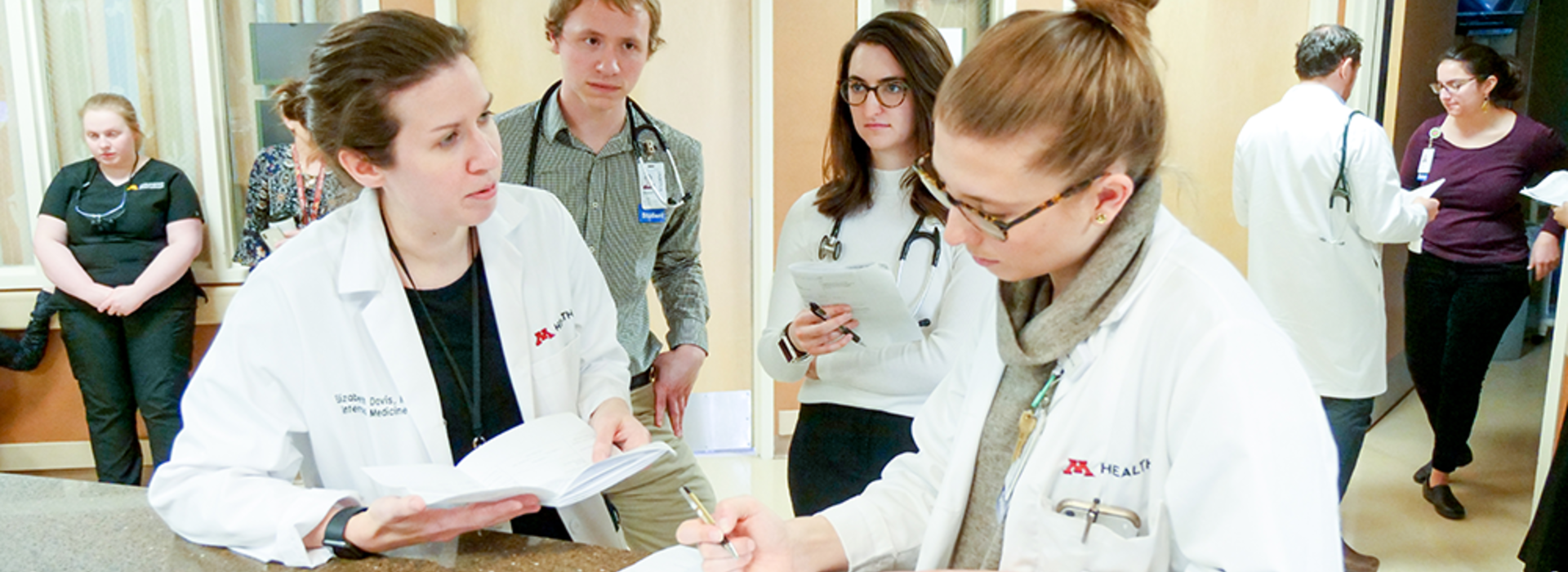
Program Pivots to Care for Students During the Pandemic
The COVID-19 pandemic began as the second year of Confidential-Bridging Counseling (CBC) Services was underway, and Maryanne Reilly-Spong, PhD, like so many clinicians, had to quickly pivot her practice to continue her important work of helping U of M Medical School students, switching to telehealth sessions in a short four days.
“With our students scattered away from campus, students were feeling isolated, and the need for counseling was acute,” said Dr. Reilly-Spong, a psychologist in the Office of Medical Education who leads CBC Services. “Virtual visits presented some online connection issues and privacy concerns for those students living in shared-housing to find a good place for our sessions. But, we managed through and have been able to provide service at the same level as before the pandemic.”
CBC Services aims to bridge gaps in mental healthcare needs for Medical School students. In a role she began in 2019 – the first-ever in Medical School history and among the first in programs across the country – she provides short-term support to students who need guidance in dealing with mental health concerns, helping to alleviate their symptoms and referring them to further resources or care. Dr. Reilly-Spong’s role is not limited to mental health counseling; she also provides performance coaching. Students can plan their medical board study schedules and strategies with her or receive coaching on test-taking or stress reduction.
With her growing experience in the program, Dr. Reilly-Spong recognizes that mental health needs of medical students are punctuated over the course of their studies. The acuity is higher for first-year students, and they experience increased anxiety, sadness and sleeplessness. Mental health challenges most often occur during transitions, so the transition to clerkships or the transition of planning to residency may cause a student to reach out.
“Reduced contact hours and the introduction of pass/fail in the first year have helped students manage the workload better,” Dr. Reilly-Spong said. “We also provide services outside of CBC, like academic advising and peer mentoring and support. The combination of these resources created a safety net for students.”
In addition to helping medical students thrive throughout their years at the U of M, the CBC is helping to prepare them for the future of residency and practice. “As students graduate, I make sure they have information about how to find and work with mental health practitioners,” Dr. Reilly-Spong said. “I also talk to them about developing peer support networks. It is important for residents and attending physicians to make trusted connections with peers, and I believe that their exposure to the CBC fosters skills to ask for help.”
Fighting the stigma of mental illness continues to be a roadblock to trainees and clinicians getting the help they need, but Dr. Reilly-Spong sees changes on the horizon. “We are seeing a trend to separate criminalization and mental illness and also to change the way mental illness is asked about for medical licensure. In general, ableism is being confronted, as well, and people are more sensitive to using language like ‘crazy’ and ‘nuts’ that reinforces stigma,” she said.
Since the program began, the CBC Services has provided support to nearly 300 medical students in more than 1,000 total visits. About 25% of students who receive services return later with a new concern. Scheduling is easy, services are free and every step is taken to ensure privacy of students. Survey after survey, 100% of students have claimed that they would recommend the counseling services to a peer.
“We are so proud of our students,” she said. “They have worked so hard to become physicians through tremendous challenges and are always looking for ways they can do more to help others. Medical school is always difficult – the pandemic added to those difficulties.”
To help support medical students' mental health at the U of M Medical School, visit z.umn.edu/medschoolmhm.